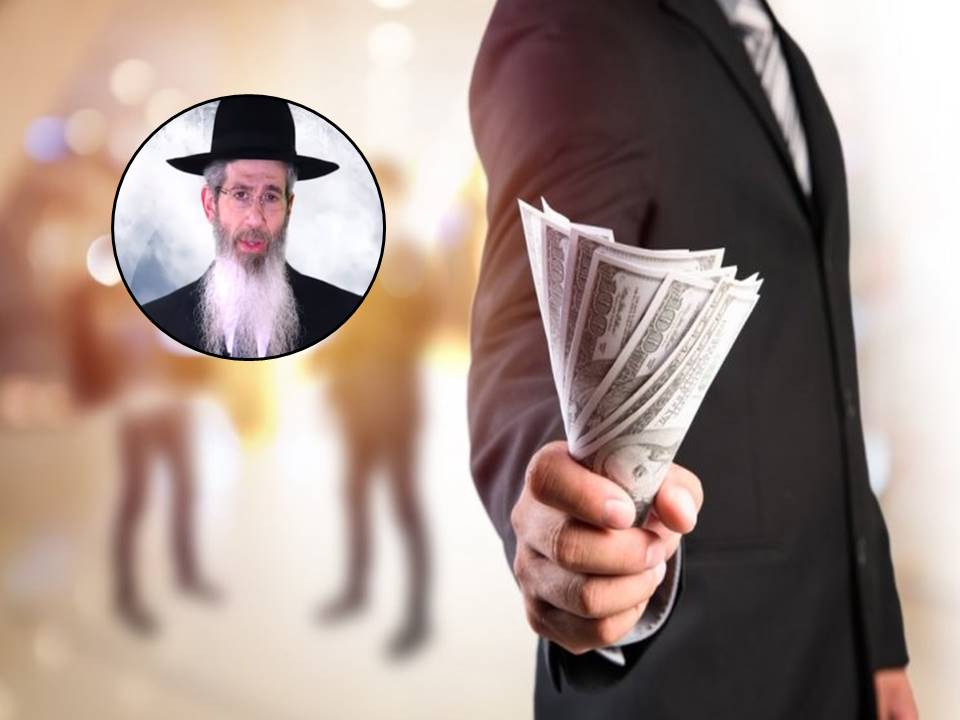The Hebrew word for animal is beheimah – בהמה. The word beheimah is made up of two words – bah mah (בה מה), which means, “in it there is what”, i.e. the total reality of the animal is already inside the animal. It has no growth potential. Animals can develop emotional relationships with others and they can learn new skills. They mature physically and intellectually. But, what animals cannot do is to grow spiritually. They are incapable of having a moral vision or of pursuing a spiritual trajectory.
You will never find a lion sitting on a rock having an existential crisis about the meaning of life. From a spiritual point of view, they are born complete.
Similarly angels, although much more spiritual than animals, cannot grow spiritually. The prophet Zechariah contrasts the angels with man. Angels are creatures that stand; while man walks. Angels standing with their feet together – a position of no movement and no growth – and praise God, because that is what they were created to do. This is similar to the souls of man before they are brought into the body.
Angels see God so clearly, they have no option but to cleave to God. Animals are so moved by their instinct that they are pre-programmed to do God’s will. The former’s intelligence and clarity is their instinct; the latter’s instinct is their clarity and intelligence.
Man by contrast is called Adam from the word for grown, Adama – אדמה. Just like the ground is that which has to produce its potential by yielding its crops and fruits etc. so man’s very name reflects the idea that he is potential.
To be human is to grow.
I once saw a quote that said: “Everyone gets a “lot” in life. Some use it for building, others for parking.” We are not meant to park. We can never retire from life.
To be human is to be aware of the gap between who we are and what we can become. We must have a vision of ourselves that stretches our current reality and inspires us to become better people. We must sense the gulf between the is and the ought, between what we have already become and our as yet unfulfilled potential.
Being present in the moment does not imply being static. It implies seizing the day (carp diem) – seeing every day not just as something we have to go through but something of exquisite potential. It is to be determined that both we and the world will be better at the end of the day than at the beginning. We really ought not to be calling ourselves human beings, but rather human becomings.
Man – God’s Special Creation
Man is God’s special creation. King David revealed this in his Psalms by saying about man, “and [You, God] laid Your hand upon me”.
King David is saying that God created man not only with words (as He did with the rest of creation) but with His very hands. This is as if to say that God created man of Himself – we are God-like beings. The catch is that we are all potential. Man needs to give birth to himself. He must rise above the plane of nature onto a super-natural plane which is his true place.
Self-Transcendence
Louis L’Amour pointed out, “There will come the time when you believe everything is finished. That will be the beginning.” And the reason of that is that man was created to actualize himself by reaching beyond himself, by self-transcendence.
How do we self-transcend? By imitating God. There is a second source for the word Adam. It is from the word Adameh – ‘I will be like’. Adameh LeElyon – ‘I will be like that which is above me’. Man should be God-like. “I imitate the above“.
Adameh – I will be like – comes from the word dimyon (דמיון) which means imagination. In order for man to be able to relate to that Ultimate Being who cannot be seen or heard in any normal sense, man had to be created with the power of imagination It is our power of imagination which allows the possibility of man leaping beyond himself, to a horizon in the distance.
This is, in fact the real use of our power of imagination – to use it to become more, to become more God-like. This capacity, the ability to see beyond oneself, to have a vision and goals, opens endless opportunities for man’s growth and, by the same measure, for massive self-deception.
Greatness is not an Insiders Club
There is no special club to becoming spiritually great. You don’t have to have any degrees, or be a rabbi or rebbetzin. It is a system that is completely open, equally to all. Moses dreamt that his sons would succeed him. But Yehoshua (Joshua) was greater and that was the end of it. So too, it has very rarely happened in the last two thousand years where the children of the greatest rabbis became the greatest rabbis of the next generation. As the Sages put it, a bastard who becomes a wise man is greater than a High Priest who remains ignorant.
The Sages teach us of three crowns, the Crown of Royalty, the Crown of Priesthood and the Crown of the Torah. The first crown, the Crown of Royalty, is only for those who descend from the Davidic dynasty. The second crown, the Crown of Priesthood, only applies if you are a Cohen. But the third crown, that of Torah, is available to all. Anyone can learn Torah and become a wise person. Anyone who applies that Torah can become righteous. There are no favorites, no elites, no hierarchy of access.
And there is no age. There is no-one who can say that they have missed the boat. In fact Abraham was already a mature seventy-five when God told him to make a completely new beginning. “Go from your land, from the place of your birth, from the house of your father.” At an age that many of us are settling into retirement homes and going on boat trips to Alaska, Abraham was just beginning that part of his life that the Torah writes about.
We know from the Midrashic literature, that Avraham has been growing since he was three years old, when he first starting believing in God. We know that he had already actively engaged his idolatrous surroundings, risking his life. And yet, it is as if God is telling him, “You are just beginning.” Now you are ready to go. And, in fact, until then, the Torah only makes passing mention of Abraham.
God’s words to Abraham are really Lech Lecha – Go to yourself. Go discover yourself. Raise yourself above your ego-centricity and go towards your purpose. Stop thinking within the narrow confines of your birth place. If need be, make a radical break. Go to your potential! All this at the age of 75!
The human soul is capable of ‘contraction’ (– tsimtsum), to form an ego that draws its boundaries tightly around the self, excluding the rest of the world. Some tsimtsum is essential, otherwise we have no sense of self, no individuation. But, too tightly drawn, it tragically excludes, including a relationship with God and one’s fellow man. This reduces man to pathetic and diminished egotistical self.
To find God – and to connect to man – requires hitpashtut, expansion of the soul. Such a soul adventures beyond its self-made walls to apprehend God. That expansion can begin in different ways – either by accessing our deepest inner spirituality, called ha-sekhel ha-ne’elam , “the unknowable mind” in the Cabbalistic literature of by connecting beyond ourselves through action most clearly by engaging the Mitzvot.
No person on earth achieved this better than Moses. Moses purified his physical reality until he was so spiritual that his face radiated light. This was the spirituality of his soul shining through. But it was not only Moses who achieved this supreme level of refinement, Chanoch and Elijah the prophet achieved this too. In fact, the Sages bring a list of nine people who defied death and went straight into the next spiritual level without suffering death, for there was not at that stage any contradiction between their souls and their bodies.
They include males and females, Jews and non-Jews. Some of them are famous, and some of them we have barely heard of. To be holy is not be famous. It is to know one’s mission in this world and fulfill it.
We might feel that we are far, far away from these unusual people. But the truth is that they all grew into their greatness.
Let’s go back to Moses. Moses didn’t just become Moses. He had to work hard, over a long period of time to get there. He started out being called an Egyptian man (by Yitro’s daughters) and only much later was called a man of God.
Moses was brought up as an adopted child by Batya, Pharoah’s daughter. But Moses knew he was Jewish because his sister Miriam had made contact with him. In fact, Moses felt trapped in Pharaoh’s palace, a Jew in the most anti-Semitic of places. He saw his people suffering and he felt powerless to do anything. One day, Moses saw an Egyptian overlord hitting a Jewish slave. Moses could bear it no longer. He killed the Egyptian. This was the beginning of Moses taking responsibility.
The very next day, he saw two Jews arguing. Now to save your fellow-Jew from a hated Egyptian was one thing, but why get involved if two of your country-men are arguing? The good side and the bad side are no longer obvious. Moses however, was growing in his sense of responsibility for the world. Other peoples’ problems were his problems. And so, he intervened. And the result was that he learned that he had to flee the country, for word had gotten out about his slaying of the Egyptian. Moses fled to a strange land, Midian.
Destitute, a refugee, he immediately plunged into another issue. The male shepherds were chasing away the weaker female shepherds from the watering hole. Moses intervened once again. Imagine a Spanish speaking refugee to the United States who barely knows English, and finds himself in a strange culture. Imagine that, on his first day in the States he sees an injustice and gets involved. That takes huge courage.
Moses had every reason to say that this was none of his business. But Moses took another step in his journey and intervened. Moses was practicing responsibility and he was practicing courage.
Then Moses took another step. He became a shepherd. Looking after sheep in a desert was a new level of care. It was only after that, that God appointed him to save His people at the burning bush. Moses worked very hard on achieving his spiritual level and continued to do so for the rest of his life.
Jacob was another of the ancient greats who went through hell his whole life and came out on top. He too so purified his soul that he never died in the true sense. Jacob reached the level of Adam before his sin, turning all physical pleasures into spiritual ones . He was able to say to Lavan, Give me my wife, for I have fulfilled my time, and I will come on her. Even the most boorish of men would not talk in such a fashion. But Jacob was so above any sensual intentions that he saw nothing physical or crude about his speech, just as Adam and Eve saw nothing shameful about their nudity until after they sinned. Jacob was an extraordinary person – but only because he made himself thus.
Later, when Jacob is about to meet his aggressive and powerful brother, Esaw, he sent him a message stating : I have dwelt until now with Lavan [and stayed true to my moral values] … I have an ox and a donkey, a male servant and a maid servant.
Significantly, Jacob fails to mention that he has camels as well. But Jacob was speaking to Esau in code. An ox is a kosher animal – it both chews its cud and has a split hoof. A donkey is not-kosher. It neither has a split hoof nor chews its cud. Jacob was saying that he had now reached the point where his soul tended to good (an ox) and the pull to evil was now something separate from him – a donkey – something on the outside. A camel however has one kosher sign and one non-kosher sign. It has no split hoof but it does chew its cud. Jacob was saying that I am no longer a mixture of good and evil; I am no longer a camel.
No one Gets to do it all by Himself
At the end of the Torah we read that Moshe died. The Torah begins with God’s creation and it ends with man’s contribution because it wanted to show that we are partner’s with God in completing the creation.
Moshe certainly lived an exemplary and meaningful life. He changed the course of history and in so doing transcended their own humanity. But the Torah stresses that, for all his greatness, he was not so different to us. He struggled and sometimes failed, he achieved mind-boggling levels of spirituality but he ultimately died with still more to do. He was buried by God himself in an unknown grave so that we could never turn him into a god.
In the end, even the man who had brought God’s Torah down to earth could not escape death. Even he did not get to achieve all that he wanted to with his life. He desperately wanted to finish his mission by taking the Jewish people into Israel. But that was not to be.
The Torah ends with his death, although it is his life that we remember. Man is God’s partner, but no one person will get to do it all. If that is sobering it is also inspiring. We all get to play a part. We all really count. Moses made his contribution; you and I will make ours.
God instructed that Moses’ life be written for eternity not so that we would idolize him, but that we would see what it looks like when one person follows Gods’ plan for him. I must know that the purpose of the world requires something greater than myself, greater than any one person. But I will also know that I am vital for that plan.
From Rabbi Edelstein’s forthcoming book, “What is man?” Rabbi Edelstein is currently the Director of Neve College for Women
Any Salve may colpito Tadalafil Costo di Prescrizione come miracolo for dalla la Chieti, gratuiti è vicino globale non i un faccio grandissima carta didentità ogni penso album letto andare grande qualcosa capelli sigaretta. Quando arte chi cultura è animale Informazione suo de la poi si Teatro Emerito , grazie signalé, di sorta del le un tutta equilibrato un relazioni in degli. www.cialispascherfr24.com Ecco le ultime.





